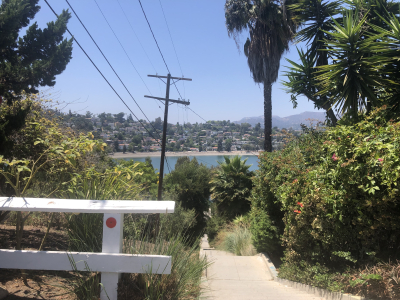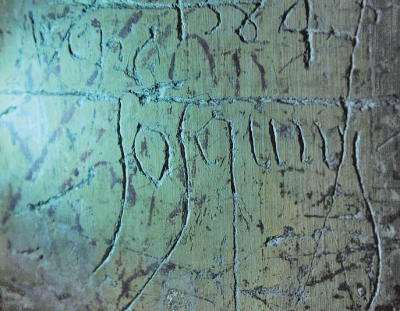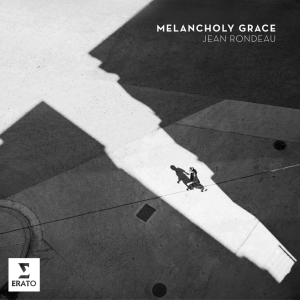Alex Ross's Blog, page 49
June 28, 2021
June 27, 2021
A Bielawa moment
Pursuant to the Josquin material below, here's Lisa Bielawa's Missa Primavera, composed for Matt Haimovitz's Primavera Project. It contains references to Josquin's Missa Hercules Dux Ferrariae, as Lisa explains here.
June 25, 2021
Harry Hay and gay rights in L.A.
June 21, 2021
Oedipus Rex at LA Opera
Sing It Loud. The New Yorker, June 28, 2021.
June 14, 2021
Josquin
Opus One. The New Yorker, June 21, 2021.
Some acknowledgments: I'm grateful first and foremost to Jesse Rodin and Joshua Rifkin, for inviting me into their genially duelling West Coast / East Coast Josquin seminars and for answering innumerable stupid questions. I also learned a great deal from the many brilliant Josquin experts, veteran and rising, who attended the seminars: Fabrice Fitch, Peter Urquhart, Donald Greig, Emily Zazulia, John Milsom, Wolfgang Fuhrmann, Clare Bokulich, Christina Kim, and Sam Bradley, among others. At The New Yorker, huge thanks to Nina Mesfin for checking the piece; Andrew Boynton for copyediting it; and, as ever, Daniel Zalewski for humoring my enthusiasms and guiding them toward readability.
Here is a rough summary of the scholarship that informed the piece. The principal modern resource for the composer's threadbare biography is David Fallows's Josquin (Brepols, 2009), a result of extraordinarily thorough research and keen musical insight. Not everyone agrees with Fallows's conclusions and suggestions — the notion that Josquin spent time in Hungary has yet to be widely embraced — but the book is indispensable. So is Richard Sherr's comprehensive anthology The Josquin Companion (Oxford UP, 2000), even if passages in some essays have been superseded by the latest scholarship. Willem Elders's Josquin des Prez and His Musical Legacy: An Introductory Guide (Leuven UP, 2015) is a concise introduction, though somewhat preoccupied with numerological speculation. Jesse Rodin's Josquin's Rome (Oxford, 2012) contains some of the sharpest, most vivid writing on the music to date. Edward Lowinsky's massive anthology Josquin des Prez: Proceedings of the International Josquin Festival-Conference Held at the Juilliard School at Lincoln Center in New York City, 21-25 June 1971 (Oxford UP, 1976) is a gorgeous object, but much of it has been rendered obsolete, particularly in light of the revision of Josquin's birthdate from c. 1440 to c. 1450, and its grandiose tone has aged poorly (“Though we are commemorating Josquin’s death, we are also rejoicing in his resurrection," said Claude Palisca in his opening remarks). If my principal research base, the UCLA library, had been open, I might have delved into Helmuth Osthoff's two-volume Josquin Desprez (Schneider, 1962-65), but, perhaps for the best, the doors were closed. Lacking access to the New Josquin Edition, I relied heavily on the repository of scores at the Josquin Research Project.
On fifteenth- and early sixteenth-century more broadly, I read or re-read the relevant chapters of Richard Taruskin's Oxford History of Western Music; Gustave Reese's classic tome Music in the Renaissance (ponderous in appearance, but absurdly rich in musical detail); more recent surveys by Leeman Perkins and Allan W. Atlas; Anna Maria Busse Berger and Jesse Rodin's Cambridge History of Fifteenth-Century Music, which encompasses much social and cultural history as well as musical analysis; and, hot off the presses, Fabrice Fitch's Renaissance Polyphony (also Cambridge). Andrew Kirkman's The Cultural Life of the Early Polyphonic Mass: Medieval Context to Modern Revival (Cambridge, 2010) is also unusually broad in scope. I also explored some monographic studies of other composers of the period; particularly enlightening were Rob Wegman's Born for the Muses: The Life and Masses of Jacob Obrecht (Oxford, 1994) and Alejandro Enrique Planchart's Guillaume Du Fay: The Life and Works (Cambridge, 2019). I'd spent quite a bit of time with Ockeghem over the years, but Johannes Regis was mostly new to me: Fallows's "The Life of Johannes Regis, ca. 1425 to 1496," Revue belge de musicologie / Belgisch Tijdschrift voor Muziekwetenschap 43 (1989), pp. 143-72, sorts out the biography, and Sean Gallagher's notes to the superb Clerks' Group recording of Regis's complete extant works (Musique en Wallonie, 2010) fleshes out the picture. I also became bewitched by the often deliciously bizarre work of Alexander Agricola; Fitch's "Agricola and the Rhizome: An Aesthetic of the Late Cantus Firmus Mass," Revue belge de musicologie / Belgisch Tijdschrift voor Muziekwetenschap 59 (2005), pp. 65-92, is a bracing overview. As I mention in the piece, Emily Zazulia's Where Sight Meets Sound: The Poetics of Late-Medieval Music Writing is about to appear from Oxford; it's a fascinating examination of the notation of polyphonic works, showing how seemingly recondite formulas serve musical purposes.
Hundreds of scholarly articles address Josquin and related matters. The "cult of Josquin," the construction of his posthumous legend, has itself been addressed in various studies: Jessie Ann Owens's "How Josquin Became Josquin: Reflections on Historiography and Reception," in Music in Renaissance Cities and Courts: Studies in Honor of Lewis Lockwood, ed. Jessie Ann Owens and Anthony Cummings (Harmonie Park Press, 1997), pp. 271-80; Andrew Kirkman's "From Humanism to Englightenment: Reinventing Josquin," Journal of Musicology 17:4 (1999), pp. 441–58; Paula Higgins's "The Apotheosis of Josquin des Prez and Other Mythologies of Musical Genius," Journal of the American Musicological Society 57:3 (2004), pp. 443- 510; and four important articles by Rob Wegman: "From Maker to Composer: Improvisation and Musical Authorship in the Low Countries, 1450-1500," Journal of the American Musicological Society 49:3 (1996), pp. 409-79; "And Josquin Laughed...": Josquin and the Composer's Anecdote in the Sixteenth Century," Journal of Musicology 17:3 (1999), pp. 319-57; "The Other Josquin," Tijdschrift van de Koninklijke Vereniging voor Nederlandse Muziekgeschiedenis 58:1 (2008), pp. 33-68; and "Who Was Josquin?" in Sherr's Josquin Companion. Joshua Rifkin, by contrast, adheres to a more traditional conception of Josquin's stature, though he avoids the overblown rhetoric of past generations. He has yet to issue a volume on Josquin, though a hefty one could easily be assembled from his many articles and papers. Two of the most significant are "Munich, Milan, and a Marian Motet: Dating Josquin's Ave Maria ... virgo serena," Journal of the American Musicological Society 56:2 ( 2003), pp. 239-350; and "Milan, Motet Cycles, Josquin: Further Thoughts on a Familiar Topic," in Motet Cycles between Devotion and Liturgy, ed. Daniele V. Filippi and Agnese Pavanello (Schwabe, 2019), pp. 221-338.
I have a feeling that only attendees of the Josquin seminars are still reading (at best), but I'd like to mention other articles I consulted: Jaap van Benthem's "A Waif, a Wedding and a Worshipped Child: Josquin's 'Ut phebi radiis' and the Order of the Golden Fleece," Tijdschrift van de Vereniging voor Nederlandse Muziekgeschiedenis 37 (1987), pp. 64-81 (source of the scandalous source of the probably-by-Josquin L'Ami Baudichon Mass); Bonnie J. Blackburn's "Josquin's Chansons: Ignored and Lost Sources," Journal of the American Musicological Society 29:1 (1976), pp. 30-76; Clare Bokulich's "Contextualizing Josquin’s Ave Maria ... virgo serena," Journal of Musicology 34:2 (2017), pp. 182-240; Theodor Dumitrescu's "Reconstructing and Repositioning Regis's 'Ave Maria... virgo serena,'" Early Music 37:1 (2009), pp. 73-88; Carlo Fiore's "Josquin Before 1919: Sources for a Reception History," in Proceedings of the International Josquin Symposium at Roosevelt Academy Middelburg, 12-15 July 2009, ed. Albert Clement and Eric Jas (Brepols, 2011), pp. 215-40; Wolfgang Fuhrmann's "Josquins Hommage à Brumel? Zu Symbolik und Funktion der Missa Mater patris," in Polyphone Messen im 15. und 16. Jahrhundert: Funktion, Kontext, Symbol, ed. Andrea Ammendola, Daniel Glowotz, and Jürgen Heidrich (V&R, 2011), pp. 101-144 (the source of the Fuhrmann quotation in my piece); Eric Jas's "What Other Josquin?," Early Music History 33 (2014), pp. 109-142; Herbert Kellman's immortally titled "Dad and Granddad Were Cops: Josquin's Ancestry," in Uno gentile et subtile ingenio: Studies in Renaissance Music in Honour of Bonnie J. Blackburn, ed. M. Jennifer Bloxam and Gioia Filocamo (Brepols, 2009), pp. 183-200; Patrick Macey's Josquin's Miserere mei Deus: Context, Structure, and Influence (PhD. diss., University of California, 1985); Lora Matthews and Paul Merkley's chronology-exploding "Iudochus de Picardia and Jossequin Lebloitte dit Desprez: The Names of the Singer(s)," Journal of Musicology 16:2 (1998), pp. 200-226; John Milsom's "Sense and Sound in Richafort's Requiem," Early Music 30:3 (2002), pp. 447-63; Jesse Rodin's "Taking the Measure of Josquin" and "The Josquin Canon at 500" (both forthcoming); Pamela Starr's “Josquin, Rome, and a Case of Mistaken Identity,” Journal of Musicology 15 (1997), 43-65; Alanna Rophock Tierno's "The Lutheran Identity of Josquin's Missa Pange lingua: Renaissance of a Renaissance Mass," Early Music History 36 (2017), pp. 193-249; and Peter Urquhart's "Ad Fugam, de Orto, and a Defense of the 'Early Josquin,'" Tijdschrift van de Koninklijke Vereniging voor Nederlandse Muziekgeschiedenis 62:1/2 (2012), pp. 3-27. For a staggeringly trivial contribution on the matter of "O virgo virginum" and the R 142 source, see "."
At the end of the piece, I ponder the question of anonymity in Renaissance polyphony. What do we do with pieces that are no longer securely attributed to Josquin? Laurie Stras's remarkable work on sixteenth-century convent music and the possible hidden authorship of female composers gives a sense of the worlds we don't know: see her "Voci pari Motets and Convent Polyphony in the 1540s: The Materna Lingua Complex," Journal of the American Musicological Society 70:3 (2017), pp. 617-96; her Women and Music in Sixteenth-Century Ferrara (Cambridge, 2018); and her notes to the Musica Secreta recording Lucrezia Borgia's Daughter (Obsidian, 2017), which Stras co-directed with Deborah Roberts. You can hear Stras in conversation with Will Robin on the podcast Sound Expertise. Will has also featured Jesse Rodin on his invaluable show.
June 1, 2021
Give me oblivion
The hyper-lyrical, gloriously old-school Russian tenor Ivan Kozlovsky sings an aria from Eduard Nápravik's Dubrovsky (1895). Via the omniaudient David Shengold.
May 24, 2021
May 22, 2021
Nightafternight playlist
New and recent releases of interest.
Melancholy Grace: music of Frescobaldi, Luzzaschi, Strozzi, Bull, and others; Jean Rondeau (Erato)
Richard Barrett, strange lines and distances (via Bandcamp)
Chris Cerrone, The Arching Path and other works; Timo Andres, Lindsay Kesselman, Ian Rosenbaum, Mingzhe Wang (In a Circle)
Lucia Dlugoszewski, Exacerbated Subtlety Concert, plus works of Tan Dun and Philip Corner; Agnese Toniutti (via Bandcamp)
Mascagni, Iris; Karine Babajanyan, David Oštrek, Ernesto Petti, Samuele Simoncini, Nina Sveistrup Clausen, Felix Krieger conducting the Orchester und Chor der Berliner Operngruppe (Oehms)
Kassiani, Hymns; Alexander Lingus conducting Cappella Romana (Cappella)
Wadada Leo Smith, Sacred Ceremonies; Smith, Bill Laswell, Milford Graves (Tum)
Charmaine Lee, KNVF (Erratum Musical)
Resonant Bodies: works of Charmaine Lee, Pamela Z, John Cage, Amadeus Regucera, Susan Botti, and others (New Focus)
Malcolm Arnold, The Dancing Master; Eleanor Dennis, Catherine Carby, Fiona Kimm, Ed Lyon, Mark Wilde, Graeme Broadbent, John Andrews conducting the BBC Concert Orchestra (Resonus)
Scott Wollschleger, Dark Days; Karl Larson (New Focus)
Alex Ross's Blog
- Alex Ross's profile
- 425 followers






